A familiar name in the world of fresh produce in South Africa, Freshworld sells close to 5 million cartons of South African fruit (mainly citrus - the new Limpopo lemon season starting in a week, table grapes, stonefruit, apples, pears, yellow kiwis) and vegetables in a year.
“Everything but gooseberries, basically,” laughs Adolf Kieviet, joint managing director of the family business along with his brother Danie Jnr. Two other brothers are also involved in the company that his father, Danie Snr started in 2001. The business has its origins when his grandfather left the Netherlands for South Africa and eventually became the biggest supplier to the country’s best-known flower bulb supplier Hadeco.
"The family tradition was taken forward by my uncles in various roles, one of which was the establishment of Freshmark in 1989, which became wholly owned by the Shoprite group in 1996 and is today the biggest produce company in South Africa."
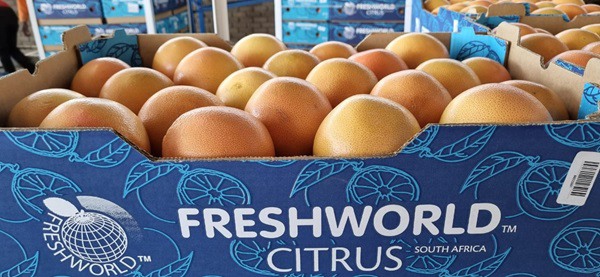
Freshworld is part of RSA Group, the biggest fresh produce sales organisation in South Africa, he says. RSA Group sells all top producer brands on municipal and private markets, as well as retail.
“We do a lot of work in Asia, I’d say about 50% of our trade is with Asia, 25% to Europe, some 15% to USA and then Africa is a very important customer for apples.”
He remarks that the Chinese economy is under a lot of pressure. “We’re not seeing the same buying power as before. In Asia people are shopping for smaller parcels every day.”
He adds that the Chinese market is very specific – high brix citrus, for instance, or elongated lemons – but not homogenous: buyers in areas like Shanghai prefer smaller fruit than in Beijing.
Gold kiwis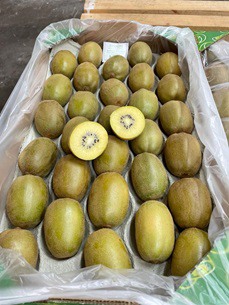 Freshworld is particularly excited by the huge opportunity for South African golden kiwis during the window in Europe when there are no other fresh gold kiwis available.
Freshworld is particularly excited by the huge opportunity for South African golden kiwis during the window in Europe when there are no other fresh gold kiwis available.
RSA Group is in partnership with The Kiwi Connection, marketers of gold, red and sweet green kiwis, with a productions target of 1,000ha by 2030.
“Last year we exported about 178,000 trays and this year we’re aiming at 200,000 trays of kiwis to Europe and Asia. What’s working in South Africa’s favour is that the energy costs in Europe are very expensive.”
Vegetable exports run year-round: carrots and tomatoes to the Middle East, potatoes into Africa, onions.
Citrus
As a major citrus exporter plying the entire season drawn from all of the production regions, Freshworld owns no production units. It has interests in packhouses (Marble Hall Citrus in Limpopo and Mandaryn Fruit Packers in Patensie).
“Oranges still make up about 50%, grapefruit is around 15%, with lemons and soft citrus making up the balance. Easy peelers are growing every year. There are a lot of varieties that are being phased out like early clementines which are not so popular anymore. Most popular are still Nadorcott and Tango. Last year the EU was good for easy peelers because of a shortage.”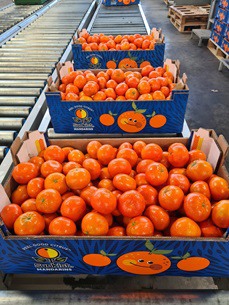 In the USA, where Freshworld packs counter-seasonally into the Sunkist brand, there is big growth in easy peeler consumption and South Africa is ideally situated to service the US market.
In the USA, where Freshworld packs counter-seasonally into the Sunkist brand, there is big growth in easy peeler consumption and South Africa is ideally situated to service the US market.
“What is helping South African shipments to the USA is the transport costs from the West Coast to the East Coast is between $7,000 and 8,000 a truckload, our seafreight is maybe the same, but our product is cheaper than US fruit so maybe that’s helping us.”
Kieviet comments that South Africa’s citrus volumes will go to 245 million 15kg equivalent cartons by 2030 (168 million cartons over the past season) and within that, only grapefruit numbers will remain a constant: almost all other citrus categories will expand.
“As our volumes shipped to Europe have grown, the market share in Europe has dropped. We’ve had to look at other markets. It’s not as easy to ship to Europe as it once was,” he notes. “Trade with Europe is becoming more difficult because of unilaterally imposing lower residue levels.”
Europe: “Quality has to be very good”
As for Citrus Black Spot (CBS), he can only repeat the self-evident fact of no CBS having established in Europe after a century of South African citrus exports, since the fruit is not a vector of the CBS fungus. The CBS issue has been raised repeatedly with the EU.
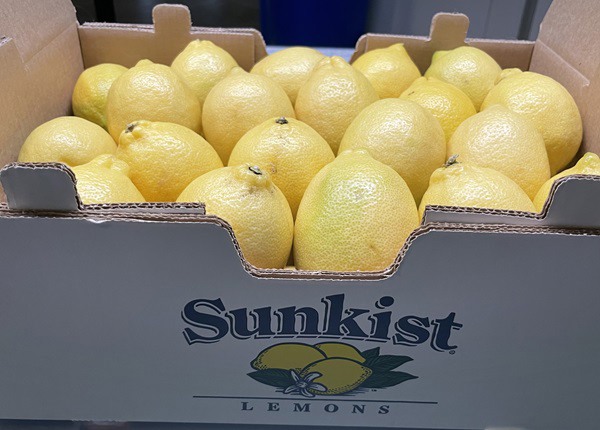
False codling moth has become another lightning rod – but rules are selectively applied, he suggests, referring to vegetables and flowers from East Africa where false codling moth is also intercepted, but without incurring the same punitive measures.
“As South Africa’s production starts earlier and ends later, and Spain and Italy plant the same varieties, so now we’re competing in the same marketplace. Their early clementines will compete with our late mandarins and if the consumer wants late mandarins, they’ll not buy early clementines.”
He points out that South African fruit quality has to be very good: growers get no government subsidies, and fruit is grown specifically to withstand the transit time of three or four weeks.

Adolf Kieviet of Freshworld
Apples and pears
“With apples and pears it’s all about consistent supply but it’s becoming more complicated as Polish supplies grow and we’re all storing our fruit for longer. All of us are doing the same thing and expecting a different outcome.”
He remarks that the pear market in Europe will be quite good this year. Their biggest concern at the moment is logistics and getting fruit from SA into Europe and UK, the major buyers of South African fruit this time of the year.
“There is a huge focus on logistics efficiencies and forward planning as much as possible. Last year we exported over 80 containers from Maputo to the Middle East. It worked well for us and we’ll continue to support that.”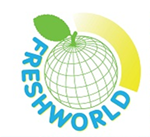 For more information:
For more information:
Adolf Kieviet
Freshworld
Tel: +2721 808 7100
Email: info@freshworld.co.za
https://www.freshworld.co.za/
